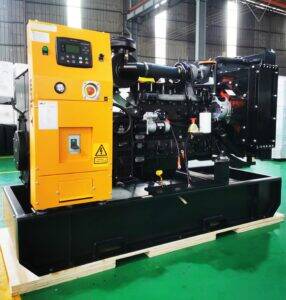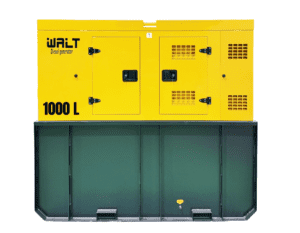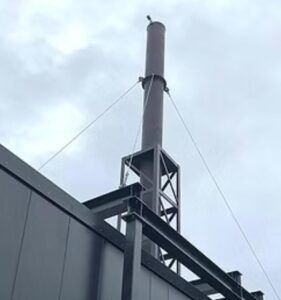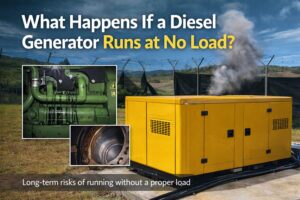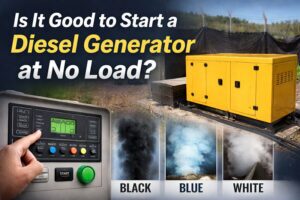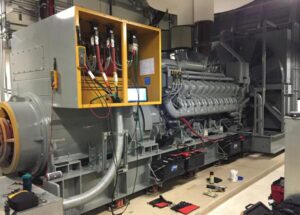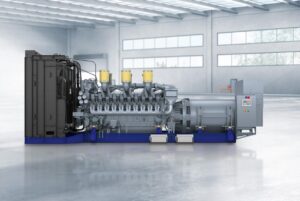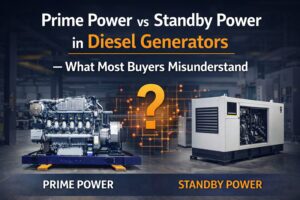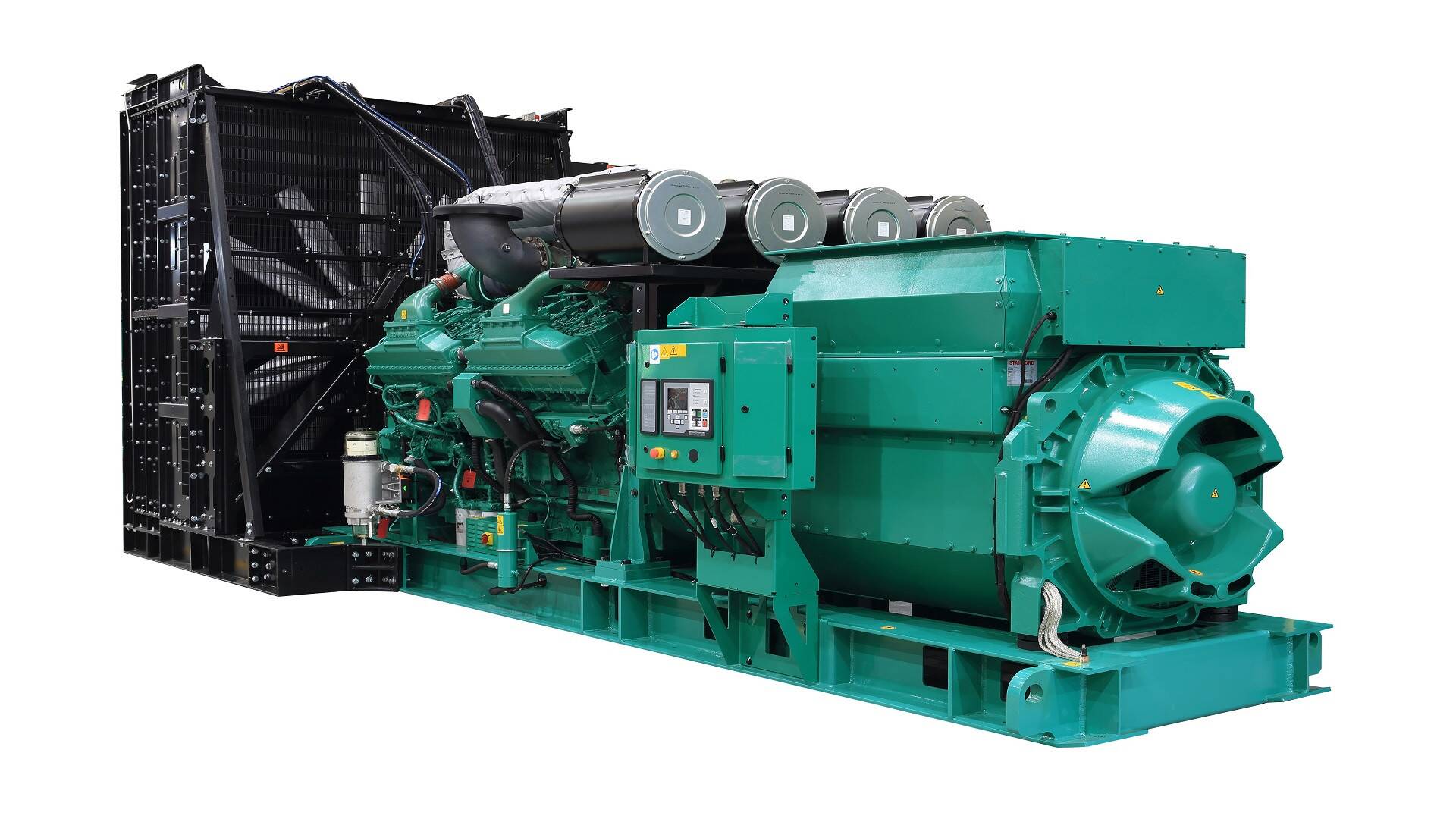
Choosing the right diesel generator is crucial for ensuring your business operates smoothly without power interruptions. But with so many options available, how can you make the right choice?
The right diesel generator should meet your specific energy needs while being cost-effective and reliable. In this guide, we will explore key factors to consider when selecting a diesel generator for your business.
Choosing the right generator is not as simple as picking one based on price alone. It's about understanding your power requirements and finding a generator that matches those needs in terms of performance and efficiency.
What power requirements should you consider when choosing a diesel generator?
Knowing your business's power requirements is the first step in choosing a generator. It’s crucial to calculate the total power demand of all equipment that needs to be powered. You can’t just go with a generator that has the highest wattage; instead, aim for one that meets your specific needs without overloading the system.
To determine your power requirements, you need to add up the total wattage of all equipment that will run simultaneously. This includes lighting, HVAC, machinery, and any other devices that rely on electricity.
How to calculate your power needs
Start by creating a list of all devices that will be connected to the generator. Each piece of equipment will have a power rating, typically found on the manufacturer’s label. Next, calculate the total wattage.
- Single-phase devices: Add the wattage ratings of all single-phase devices.
- Three-phase devices: Multiply the current (in amps) by the voltage (in volts) to get the wattage.
Now, add up all the wattages to get your total power demand. Don’t forget to account for future expansion or unexpected surges in demand.
For example, if your business involves heavy machinery, you’ll want to consider how much power each machine requires at startup. These devices tend to have a higher surge demand than their running power, and a generator needs to be able to handle these fluctuations.
Power factor considerations
Another important point is the power factor (PF), which typically ranges from 0.8 to 1. This factor tells you how much of the total power is being used efficiently. Diesel generators usually perform best when their load factor is around 75%-80%, which balances efficiency and longevity. Be sure to factor in the power factor when calculating your total power needs.
What are the different types of diesel generators?
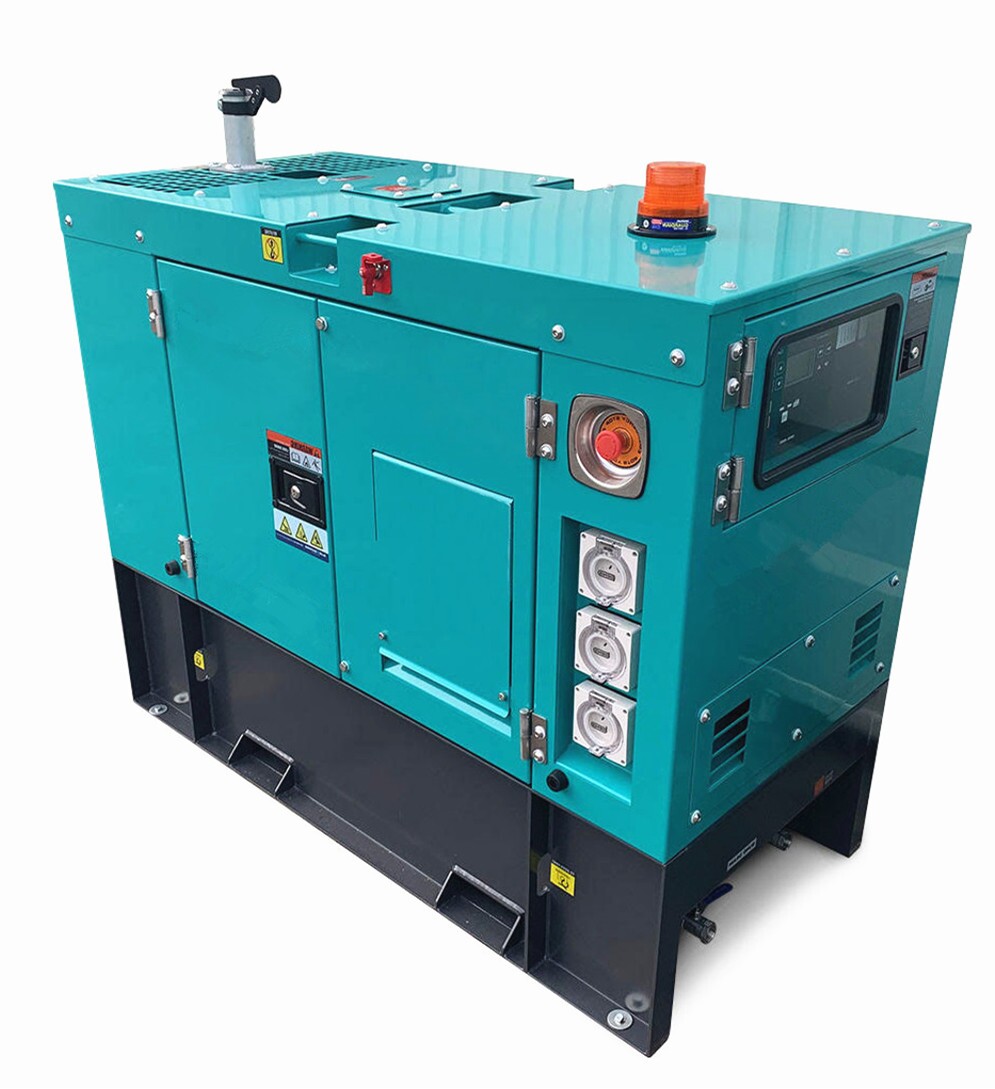
Once you have your power requirements figured out, the next step is to decide which type of diesel generator best fits your business. There are different configurations and models available, each offering distinct benefits and drawbacks.
You’ll need to consider factors such as load demand, fuel efficiency, and whether you need a portable or standby generator.
Standby vs. Prime Diesel Generators
-
Standby generators are typically used for emergency backup power. They are ideal for businesses that need to maintain operations during power outages but don’t require continuous operation.
-
Prime generators, on the other hand, are designed for continuous use. They are more suitable for businesses that need to rely on a generator for extended periods, like construction sites or manufacturing plants.
Portable vs. Stationary Diesel Generators
-
Portable generators are smaller, easier to transport, and ideal for temporary use. They can be used for events or as backup power for small businesses.
-
Stationary generators are larger and provide long-term power solutions. They are often used by businesses that require high power output and reliability.
Open vs. Enclosed Diesel Generators
-
Open generators are typically less expensive and have better cooling since they are exposed to air. However, they require proper ventilation and can be noisy.
-
Enclosed generators are quieter, protected from the elements, and better suited for areas with space limitations. They tend to be more expensive due to the added casing.
Inverter Diesel Generators
Inverter generators offer better fuel efficiency and quieter operation compared to traditional models. They are often used for sensitive electronics and provide stable voltage. These are great for businesses that require a cleaner and quieter power source, though they come at a higher price.
How does fuel efficiency impact the choice of diesel generator?
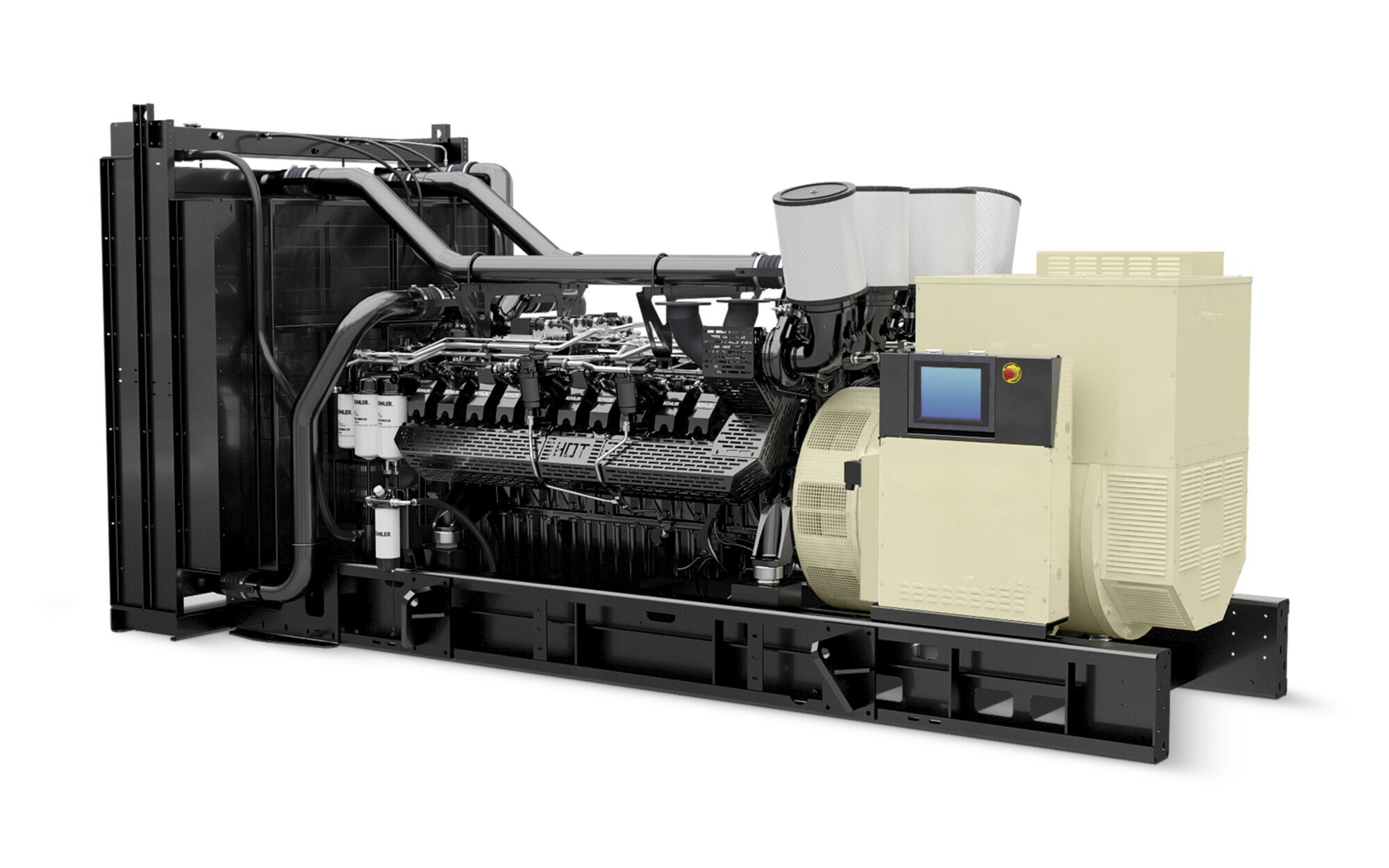
Fuel efficiency is a key factor in choosing the right diesel generator for your business. The more efficient the generator, the lower your long-term operating costs will be. This is especially important for businesses that plan to run the generator frequently or for extended periods.
Increased fuel efficiency can save your business significant money over time, so it’s essential to compare the fuel consumption rates of different generators before making a decision.
Factors that affect fuel efficiency
-
Load Factor: The efficiency of a generator depends on how much of its rated power is actually being used. Running the generator at a lower load (i.e., underutilized) can result in more fuel being burned. Ideally, you want to run the generator at around 70%-80% of its capacity for optimal fuel efficiency.
-
Fuel Type: Diesel is generally more fuel-efficient compared to other fuels, which is why diesel generators are preferred for business operations. However, some generators offer multi-fuel options, giving you flexibility in terms of fuel choice.
-
Generator Size: Sometimes, opting for a larger generator to cover future expansion can result in inefficiency if your current load is much lower than the generator’s capacity. Choosing the right size is critical to prevent wastage.
Long-Term Savings with Fuel-Efficient Models
Fuel-efficient generators may have a higher upfront cost, but the savings over time can be substantial. For instance, some newer models come with advanced technology that improves fuel efficiency by up to 30%. Over time, this leads to lower operational costs.
How do maintenance and durability influence your choice?
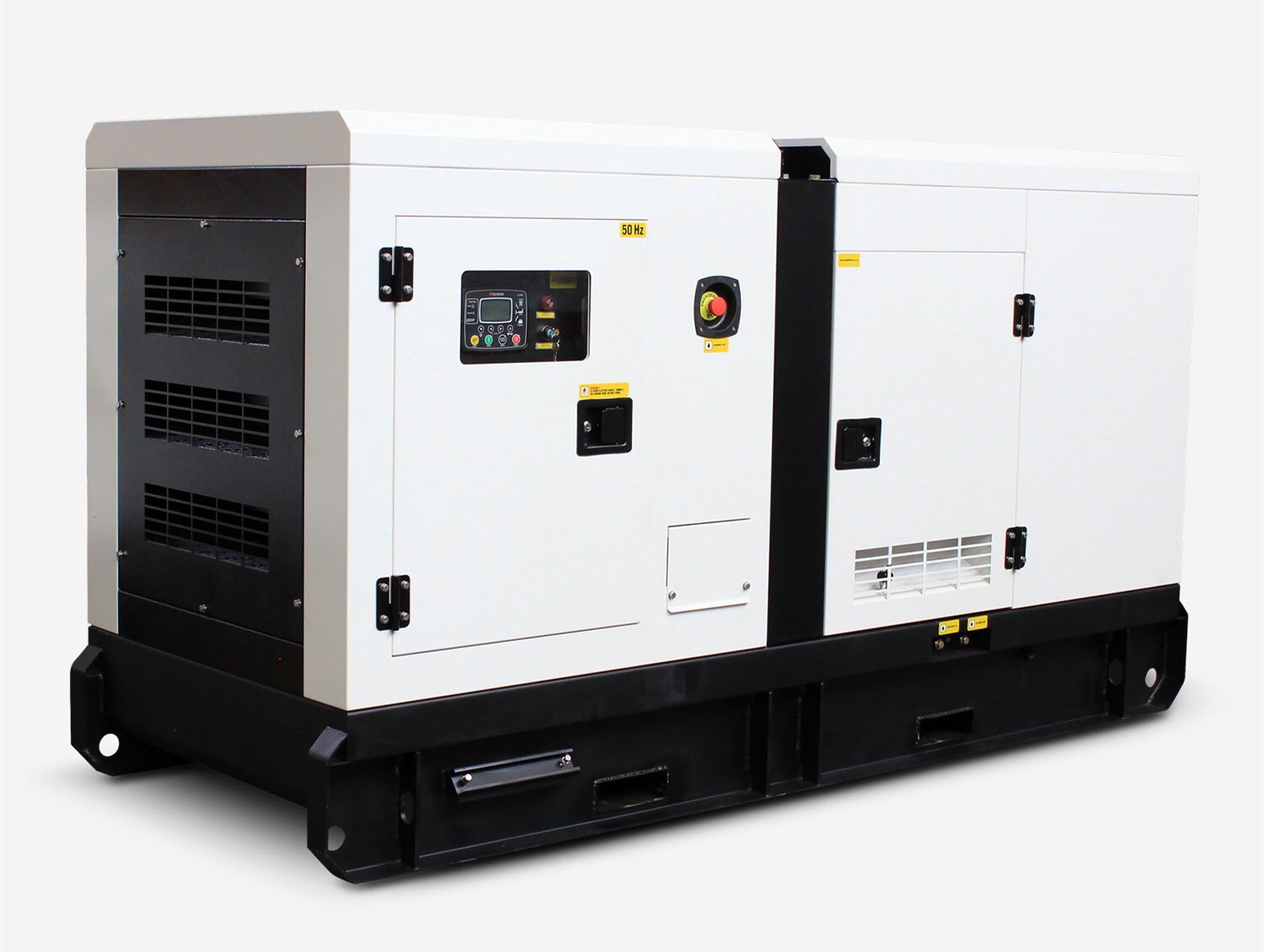
Another important factor is the durability and ease of maintenance of the diesel generator. While diesel generators are known for their reliability, regular maintenance is essential to ensure optimal performance.
A generator that is easy to maintain and has a long operational lifespan can save your business time and money in the long run.
What to look for in terms of durability
-
Engine Quality: The quality of the engine directly affects the generator’s lifespan. High-quality engines from reputable brands tend to last longer and perform better.
-
Maintenance Intervals: Check the recommended maintenance intervals for the generator. Some models require more frequent servicing, which can increase downtime and costs.
-
Spare Parts Availability: Ensure that replacement parts are readily available in your region. This is crucial to avoid long lead times for repairs that can disrupt your business operations.
How to minimize maintenance costs
-
Routine Inspections: Regularly inspect the generator for any signs of wear and tear. Replace air filters, check the fuel system, and monitor the battery.
-
Oil Changes: Regular oil changes are vital to ensuring the longevity of your diesel generator. Follow the manufacturer’s guidelines on oil change intervals.
-
Use a Professional Service Provider: For larger, more complex generators, it’s best to hire a professional to conduct regular maintenance to ensure optimal performance.
Conclusion
Choosing the right diesel generator involves understanding your power requirements, evaluating different generator types, and considering factors like fuel efficiency and maintenance. By making an informed decision, you ensure that your business remains operational and cost-efficient.
Buying And Technical Contact
You can contact us in many ways:
You can go to our website (URL: https://waltpower.com/contact/) and drop us a message.
You can email us:
Our Contact is: +8618717996108 (WhatsApp)

